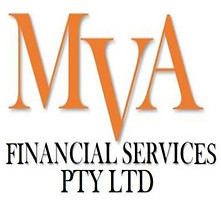What Lenders Look for in Loan Applications – And How a Mortgage Broker Can Help You Prepare
- MVA Financial Services
- Mar 16
- 3 min read
When applying for a home loan, understanding what lenders evaluate can make a significant difference in your approval chances. A mortgage broker can help navigate the process, ensuring you meet lender requirements and secure the best deal. In this guide, we’ll break down key factors lenders assess and how you can prepare for a successful loan application.

1. Credit Score and Credit History
Lenders review your credit score to assess how responsible you are with debt. A higher credit score indicates lower risk, increasing your chances of approval and securing better interest rates.
How to Prepare:
✔️ Check your credit report for errors and dispute inaccuracies.
✔️ Pay off outstanding debts or at least reduce balances.
✔️ Avoid applying for multiple loans or credit cards before your mortgage application.
If you're unsure where to start, a mortgage broker can help review your credit profile and suggest ways to improve it.
2. Income Stability and Employment History
Lenders want to see a stable income to ensure you can meet monthly repayments. A consistent employment history demonstrates financial reliability.
How to Prepare:
✔️ Maintain a steady job and avoid major career changes before applying.
✔️ Gather proof of income, such as payslips, tax returns, and bank statements.
✔️ If self-employed, prepare financial statements and business tax records.
A mortgage broker can guide self-employed borrowers through alternative documentation options.
3. Deposit and Loan-to-Value Ratio (LVR)
The more deposit you provide, the lower the risk for lenders. A higher deposit also helps secure better loan terms and interest rates.
How to Prepare:
✔️ Save at least 20% of the property price to avoid Lenders Mortgage Insurance (LMI).
✔️ Explore government grants or first-home buyer schemes if eligible.
✔️ Reduce unnecessary expenses to boost your savings.
A mortgage broker can help you explore lenders who accept lower deposits or government-backed programs.
4. Debt-to-Income Ratio (DTI) and Existing Financial Commitments
Lenders assess your debt obligations compared to your income. Too much debt relative to your earnings can impact your borrowing power.
How to Prepare:
✔️ Pay down credit card balances and personal loans.
✔️ Avoid taking on new debt before your mortgage application.
✔️ Calculate your DTI to understand how much you can afford to borrow.
A mortgage broker can assist in finding lenders with more flexible DTI requirements.
5. Genuine Savings and Spending Habits
Lenders may check your savings history and spending habits to determine financial discipline.
How to Prepare:
✔️ Maintain a steady savings pattern over at least three to six months.
✔️ Avoid large, unexplained withdrawals.
✔️ Keep your spending within a reasonable range.
A mortgage broker can advise on structuring your finances to demonstrate financial responsibility.
6. Property Type and Location
Lenders also evaluate the type of property and its location as part of their risk assessment.
How to Prepare:
✔️ Choose properties in desirable, high-growth areas.
✔️ Consider lender restrictions on certain property types (e.g., off-the-plan apartments, rural properties).
✔️ Work with a mortgage broker to find lenders that specialize in your property type.
Work with a Mortgage Broker to Strengthen Your Application
Navigating the loan application process can be complex, but you don’t have to do it alone. A mortgage broker like MVA Finance can help you:
✅ Find the right lender for your financial situation.
✅ Improve your loan application for better approval chances.
✅ Access exclusive loan products and lower interest rates.
📞 Get in touch with MVA Finance today for expert mortgage advice and a stress-free loan application process!

Comments